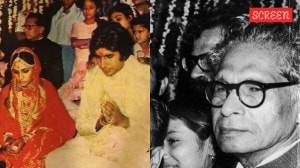“A single organ donor can save or improve the lives of more than eight people” is their opening statement as a team from Pune’s Zonal Transplant Coordination Centre (ZTCC) along with a local NGO visit a minimum of 15 colleges to inspire youngsters to pledge their organs. They do this every month. At Nagpur’s ZTCC, even a gathering of 25 or so people is sufficient — say youngsters queuing up for a driving license at the Regional Transport Office — for the team to talk about brain stem death and then expand on how the gift of donating one’s organ is a precious and noble deed.
And such has been the impact of such sensitisation drives and the meticulous efforts of Regional Organ and Tissue Transplant Organisation – State Organ and Tissue Transplant Organisation (ROTTO-SOTTO) along with four ZTCCs in Mumbai, Pune, Nagpur and Aurangabad that the top performers in the field of organ donation — Tamil Nadu and Telangana — were edged out by Maharashtra for contributing the highest number of organs donated and, as a result, giving a new lease of life to 449 patients last year.

On the occasion of the 10th Indian Organ Donation Day, the National Organ and Tissue Transplant Organisation presented the best state award to Maharashtra in the field of deceased organ donation at an event held in November last year.
ROTTO-SOTTO was set up by the Directorate General of Health Services, Union Ministry of Health and Family Welfare and, in Maharashtra, it works with the state Directorate of Health Services, while networking with private hospitals through ZTCCs. As the regional organisation, it also oversees Chhattisgarh, Goa, Gujarat, Madhya Pradesh and Union Territories of Dadra and Nagar Haveli and Daman and Diu.
ExplainedWhy donating organs matters
When Rivyani Rahandale, a Nagpur girl who believed in organ donation, died in 2019, and her organs were donated, her heart gave the gift of life to a three-year-old girl in Mumbai, her kidneys saved the life of a 14-year-old boy in Nagpur, the corneas of her eyes made this world visible to two blind people and her liver was sent to yet another person. Rivyani was just six-year-old.
Dr Astrid Lobo Gajiwala, Director, ROTTO-SOTTO for the western region and Maharashtra, said that there were several factors that contribute to a successful transplant programme.

“There are a number of myths surrounding organ donation — like the fear that the body will be disfigured or that there will be costs involved or even whether their religion prohibits it — and these have to be dispelled,” Dr Gajiwala said.
From rallies, talks, padayatras, marathons, stalls at religious festivals, competitions on organ donation to programmes for societies, corporates, security forces and police the ZTCC’s in association with local NGOs were able to conduct 387 such awareness driven activities. Training programmes for 200 volunteers and activists from more than 20 NGOs last year then helped them conduct awareness programmes in their own associations and workplaces — thus multiplying the outreach.
Story continues below this ad
In 2019, Maharashtra has raced ahead of Tamil Nadu and Telangana (see box). The sustained effort towards awareness was acknowledged by the National Organ & Tissue Transplant Organisation or NOTTO, which also felicitated the family members of six-year-old Rivyani Rahandale from Nagpur. Her parents donated her organs after a road accident left Rivyani brain dead. Her heart gave new life to a three-year-old girl in Mumbai, her kidneys saved a 14-year-old boy in Nagpur, her liver was sent to another recipient in Nagpur and her corneas opened up a new world for two other recipients.
“In 2017 at a fancy dress competition Rivyani had played a visually challenged girl and said a few lines on organ donation. In death she helped save several lives,” recalled Dr Gajiwala.
Doctors in the ICU (intensivists) are crucial to the programme as they identify and maintain potential donors. They are the ones who prepare the family for the tragic news of the death of their loved one, explain brain stem death, counsel the relatives and present the option of organ donation. They are helped by transplant coordinators. Last year, 73 transplant coordinators, doctors nurses and medical social workers were trained.
“Awareness about organ donation has improved over the years but it is still a challenge,” admits Surekha Joshi, head of the medical social work department at Pune’s Ruby Hall Clinic.
Story continues below this ad
As of January 1, there are 6,631 patients on the waiting list. “This year we are even doubling our efforts to encourage organ donation,” said Aarti Gokhale, Central Coordinator of ZTCC, Pune.

 A rally to raise awareness about organ donation in Pune (Express Photo)
A rally to raise awareness about organ donation in Pune (Express Photo)































